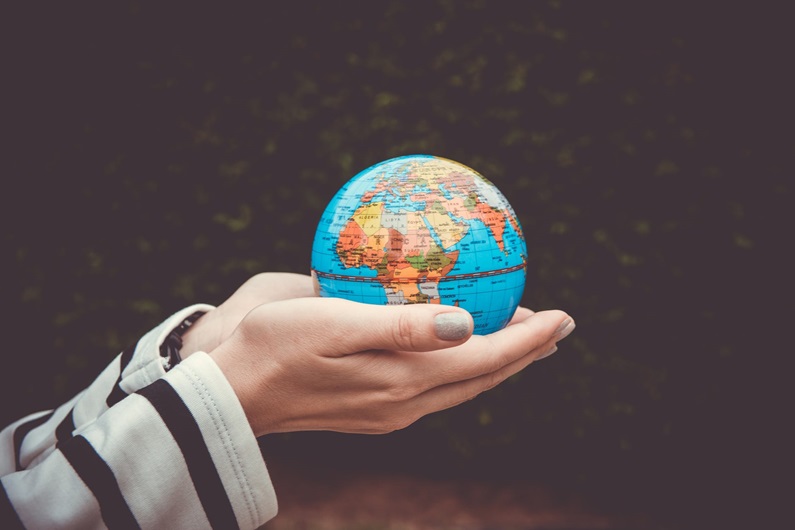Some love the holidays. Others struggle with grief, loneliness, broken family ties, or various pressures. Most of us experience a combination of both joy and sorrow.
This year, these personal challenges may be compounded by the grief that Palestinians, Israelis, and Jews are experiencing and the senseless division accompanying human suffering. Many of us can’t look away from the humanitarian crisis in Gaza.
When faced with this suffering, and other injustices weighing on our hearts, HSPs may have a tendency to disengage. Others may get so emotionally involved that it can feel almost wrong to experience joy or peace during the holidays, which, unfortunately, really do feel like luxuries these days.
For most of my life, I’ve navigated the balance of staying engaged in justice issues while preserving my well-being. I’ve struggled to participate in “normal” activities with my family and friends who may not be thinking or feeling as much as me.
So, how do we, as individuals navigating our own lives, strike a balance between engaging in supportive action while caring for our relationships and ourselves?
7 Practical Tips for Balancing Social Action and Self-Care
1) Acknowledge the universality of heightened emotions.
While you might be experiencing a whirlwind of emotions, it’s crucial to acknowledge that others around you may also be grappling with their own unique set of stresses, personal losses, and geopolitical fears.
Understanding that everyone carries their own burdens fosters a sense of shared humanity and collective empathy, even for those whose perspectives sharply differ from our own. By remembering that emotions are high, we can better navigate conversations with compassion and choose our actions wisely.
2) Don’t look away, but be mindful of what you consume.
The news can feel overwhelming to HSPs who tend toward absorbing the emotions and suffering of others. Yet, disengaging from the news is a privilege I’m not comfortable ignoring. I believe we bear a responsibility to stay informed for the sake of our communities and our ability to take effective action.
This doesn’t mean endless scrolling, or engaging with sensational headlines and talking heads. It’s important to choose when, where, and how you take in information.
Mindful engagement with the news may mean becoming aware of your reactions, setting time limits, and directing your attention toward long-form articles or academic panels. Content that involves deeper analysis and dialogue may also be less activating to your nervous system. Find a balance within your window of tolerance to avoid overwhelming your capacity to cope.
3) Nurture yourself in ways that permeate and endure.
Self-care extends beyond massages and Netflix. While these activities may be relaxing, they tend to serve as temporary distractions from the underlying causes that contribute to our stress in the first place, rather than actual self-care.
We do need ways to “turn off” sometimes, especially for HSPs with active minds who tend to overthink. We just can’t conflate these activities with self-care.
Genuine self-care involves creating space to feel and process our emotions. It’s tending to our needs, boundaries, and relationships. It’s taking an honest look at our capacity to discern where we can push ourselves and where to pull back. It’s getting intimate with our values and making choices that align them. It’s knowing our worth is inherent rather than tied to distractions we think will make us happy.
4) Take actions that align with you from a regulated state.
The intense emotions stirred by humanitarian crises and injustices can lead us into a sea of our own emotions, as well as relentless pressures and urgent calls from social media influencers.
It’s true that there are dire crises, like the one in Gaza, that require immediate attention. It’s also true that we can fall quickly into group think with polarizing algorithms that curate whatever forms of media we’re consuming. We really don’t all have to engage the same way or believe the exact same things. We need diverse forms of participation.
When it comes to balancing social action and self-care, it’s not only okay—it’s wise to have a little distance to calm your nervous system, learn, and gain clarity about ways you can contribute that align for you. It’s more sustainable for you and the movement in the long run.
5) Discern the moment for conversations that involve differing views.
Holiday gatherings often involve diverse perspectives. While we need to have honest dialogues across differences, you don’t have to engage in every discussion that presents itself. The “when” and “how” matter when it comes to having contentious conversations.
Recognize the power of speaking up and the power of stepping back. This doesn’t mean remaining silent in response to bigotry or playing nice to keep the peace. It means that you’re grounded enough to assess the setting and dynamics you’re in to discern how to respond if it’s the right time.
Polarized group dynamics are very unlikely to create the conditions for genuine curiosity and deep listening. One-to-one conversations are far more likely to be constructive.
6) Connect with supportive people.
It’s important to connect with like-minded communities who share in your care and purpose and with loved ones with whom we may not share the same views or focus.
Communities focused on shared issues can reduce isolation, provide belonging and solidarity, and offer space for processing a range of emotions, from grief to joy. We can cultivate resilience and better channel our empathy into meaningful actions.
At the same time, we also need supportive friends and family who differ in their perspectives and with whom we can connect in a variety of ways. Engaging in social action can take a toll. Having diverse relationships can offer balance and allow for a necessary break from intense work and emotions.
7) Carve out unstructured time to play.
Play is acting or exploring for the sake of enjoyment without a particular outcome and it has many benefits. Play not only allows for relaxation and creativity to flourish, but it also plays a pivotal role in preventing burnout. Carefree play triggers a release of endorphins, which can elevate your mood and provide a cognitive reset.
We’ve been conditioned out of play as adults, so we may need to intentionally set aside unstructured time to foster playfulness. Here are a few examples of unstructured play you can try:
- Nature walk (no ear buds, following your body/senses rather than a path)
- Dancing (free form, without concern for rhythm or moves)
- Painting or drawing (contour – just moving w/o lifting the brush/pen)
- Sitting on the ground and playing with or arranging nature items
As we aim to balance social action and self-care…
Let’s be mindful of how we engage, tap into the strength of our empathy, and allow for the full spectrum of emotions that accompany this time. Let’s also remember that engaging in social justice is not a solitary task and there are many diverse ways to contribute.







